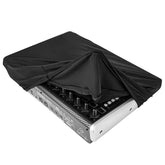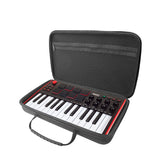Mastering Classical Guitar: Navigating Three Key Stages
by
linzz
22 Feb 2024
Teacher, how can I excel at classical guitar?
Whenever I'm asked this question, I always feel the answer is vast and somewhat vague. For ordinary enthusiasts to master classical guitar, I believe there are roughly three main stages.

In the first stage, the goal is to play steadily. For a beginner without any foundation, we strictly require students to grasp the posture of playing, sight-reading, basic exercises, focusing not on speed but on playing according to requirements, such as standard posture and pronunciation. We often say that posture determines fate, and there is a certain truth to this. The fatal enemy at this stage is one's own greedy desires, such as wanting to play certain pieces.

In the second stage, the goal is to play proficiently. As the scale and difficulty of the repertoire increase, the pleasure of conquering simple pieces in the initial stage becomes increasingly rare, and many pieces require repeated practice to play smoothly. Continuous repetition relying solely on willpower is not enough, because only with passion will one practice diligently. It will be particularly important at this stage to truly learn to appreciate classical music. Additionally, the artistic, philosophical, and intellectual depth of classical music requires a high cultural literacy from learners. Making efforts to transition from a pop music enthusiast to a classical music aficionado, being enthusiastic about classical music, is crucial at this stage. The fatal enemies at this stage are numerous, such as inefficient time management leading to failure.

In the third stage, the goal is to play well. "Playing well" doesn't necessarily mean mastering difficult pieces; music that moves people is good music. Try to fully express inner emotions through music, achieving unity of person and instrument, letting music propel bodily movement. This is referred to as emotions determining fate. Many skilled players are often simple, sensitive, and emotionally rich individuals.
Whenever I'm asked this question, I always feel the answer is vast and somewhat vague. For ordinary enthusiasts to master classical guitar, I believe there are roughly three main stages.

In the first stage, the goal is to play steadily. For a beginner without any foundation, we strictly require students to grasp the posture of playing, sight-reading, basic exercises, focusing not on speed but on playing according to requirements, such as standard posture and pronunciation. We often say that posture determines fate, and there is a certain truth to this. The fatal enemy at this stage is one's own greedy desires, such as wanting to play certain pieces.

In the second stage, the goal is to play proficiently. As the scale and difficulty of the repertoire increase, the pleasure of conquering simple pieces in the initial stage becomes increasingly rare, and many pieces require repeated practice to play smoothly. Continuous repetition relying solely on willpower is not enough, because only with passion will one practice diligently. It will be particularly important at this stage to truly learn to appreciate classical music. Additionally, the artistic, philosophical, and intellectual depth of classical music requires a high cultural literacy from learners. Making efforts to transition from a pop music enthusiast to a classical music aficionado, being enthusiastic about classical music, is crucial at this stage. The fatal enemies at this stage are numerous, such as inefficient time management leading to failure.

In the third stage, the goal is to play well. "Playing well" doesn't necessarily mean mastering difficult pieces; music that moves people is good music. Try to fully express inner emotions through music, achieving unity of person and instrument, letting music propel bodily movement. This is referred to as emotions determining fate. Many skilled players are often simple, sensitive, and emotionally rich individuals.






